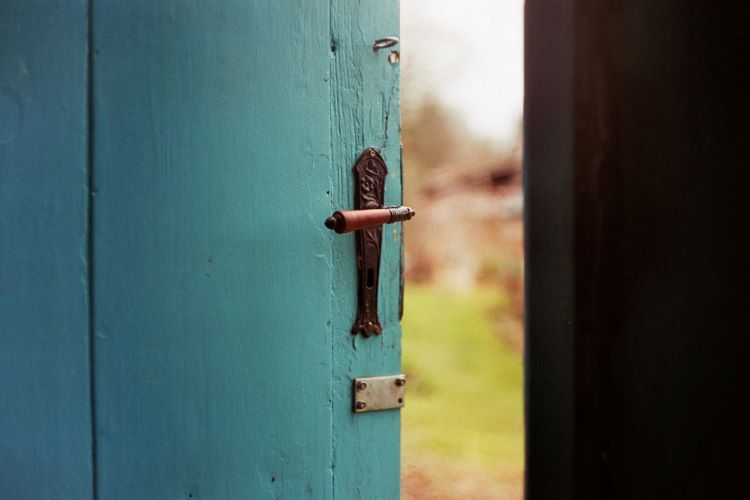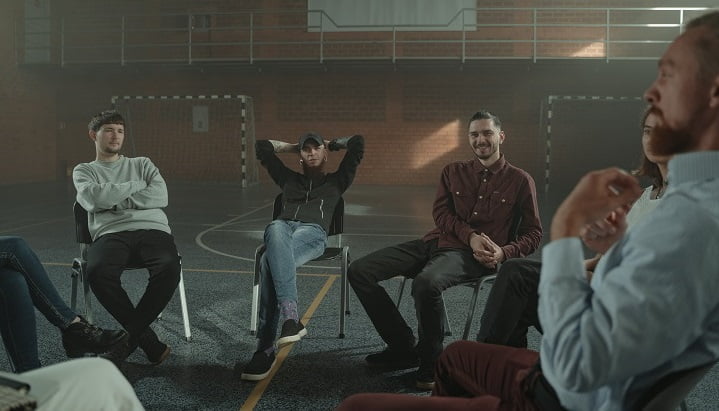Drug Rehab & Alcohol Rehab in County Durham & Near County Durham
Quick links for drug rehab and alcohol rehab in County Durham and near County Durham
- Will Friends and Family Be Allowed to Visit me at Drug Rehab and Alcohol Rehab in County Durham?
- Can I Leave Drug Rehab and Alcohol Rehab in County Durham at Any Time?
- Do I Have to Tell My Boss About Attending Drug Rehab and Alcohol Rehab in County Durham?
- What Happens If I Don’t Get Help From a Drug Rehab and Alcohol Rehab in County Durham?
- How Can I Convince a Loved One to Attend Drug Rehab and Alcohol Rehab in County Durham?
- What are the Benefits of Residential Drug Rehab & Alcohol Rehab in County Durham?
- Private vs. NHS-Funded Drug Rehab & Alcohol Rehab in County Durham
- What is the Admissions Process for Drug Rehab & Alcohol Rehab in County Durham Like?
- What are the Alternatives to Drug Rehab & Alcohol Rehab in County Durham?
- How Much Does Drug Rehab & Alcohol Rehab in County Durham Cost?
There comes a point when people who have been actively abusing drugs or alcohol realise that continuing with their behaviour will ruin their lives; this is the time when the search for reliable alcohol and drug rehab in County Durham begins.
When you open up about your drug or alcohol addiction, it is the first step towards positively changing your life with rehab.

Two people talking at a drug and alcohol rehab clinic in County Durham
Once an issue is noticed, getting help is the obvious next step; whether they prefer alcohol rehab County Durham or afar, they should be confident knowing they are making the best possible choice for their future.
When a person is addicted to drugs or alcohol, it is not a question of when they will ruin their life. It is a question of when. This is why rehab is so important.
If you, or someone you love, have a problem with addiction, you are more than likely already well aware of your issue. Getting help at rehab in Durham is vital for someone who has fallen victim to addiction.
Even in County Durham, people who try to quit abusing drugs or alcohol without help soon realise that it is all but impossible to quit on their own without rehab.
Anyone who has an addiction may be psychologically and/or physically dependent on the substance and in need of drug and alcohol rehab, as proved by studies such as the study by Terry E Robinson and Kent C Berridge that looked into the ‘Incentive-Sensitization Theory’ and why people crave drugs.
Whether you’ve developed a behavioural addiction like sex and love or gambling, or a physical dependence like alcohol addiction, rehab can offer you person-centred care for a wide range of addictions and substance use disorders. This includes benzodiazepines, ketamine, and opioid use disorders.
Make sure that you get the help you need from a drug and alcohol rehab County Durham by calling our team today on 0800 088 66 86.
Entering Drug & Alcohol Rehab in County Durham: How Do I Know When My Addiction is Something to Worry About?

Woman looking concerned at a drug and alcohol rehab in County Durham
If you already have concerns about your level of consumption, you could be suffering from a form of drug or alcohol addiction and in need of rehab.
In addition to the DSM-V criteria of addiction symptoms, there are many signs which can be clear indicators that you are suffering from a substance addiction and are in need of attending drug and alcohol rehab in Durham.
You can use questionnaires such as the CAGE Questionnaire [1] to gain more insight into whether you have an alcohol addiction, and the CAGE-AID Questionnaire for your level of drug dependence.
The more points you score, the higher your risk of addiction and need for drug and alcohol rehab.
The CAGE Questionnaire is a short and simple survey which asks the following questions:
- Have you ever felt you needed to CUT down on your drinking?
- Have people ANNOYED you by criticising your drinking?
- Have you ever felt GUILTY about your consumption habits?
- Have you ever felt you needed a drink first thing in the morning (EYE-OPENER) to steady your nerves or to get rid of a hangover?
Will Friends and Family Be Allowed to Visit Me at Drug & Alcohol Rehab in County Durham?

Photo of a blue door at a drug and alcohol rehab clinic in County Durham
Rules vary from one centre to another, however, it is common that friends and family members can visit a patient during their addiction treatment at a drug and alcohol rehab in Durham.
Nevertheless, drug and alcohol rehab facilities can have very strict rules about visitations, especially during the early stages of treatment.
Many rehab facilities will forbid any visitations or contact with friends or family members during the first two weeks.
This is to ensure that the patient is entirely focused and dedicated towards their drug or alcohol rehab recovery programme.
Additionally, family therapy is often a key component of addiction treatment programs, meaning that they may be able to see loved ones at drug and alcohol rehab in Durham outside of visitation hours.
Can I Leave Drug & Alcohol Rehab in County Durham at Any Time?

Person with a backpack leaving a drug and alcohol rehab centre in County Durham
To enter a drug and alcohol rehab in Durham requires consent. Similarly, the patient is free to leave rehab whenever they plead.
While our priority is to ensure that you fully recover from your drug and alcohol rehab, you are under no legal requirement to stay at your rehab.
However, you will be highly advised to remain at your drug and alcohol rehab and finish your addiction treatment.
There are many reasons why leaving during the middle of addiction treatment is dangerous for drug and alcohol rehab patients.
- Leaving rehab during detox can be fatal: If a patient is undergoing medication prescribed by an addiction physician in order to overcome severe withdrawal symptoms, it can be incredibly dangerous for them to quit during this process. This is because they will not be adhering to the course of medication prescribed at drug and alcohol rehab, and their withdrawal symptoms will intensify in the absence of medical supervisors.
- Abandoning long term coping mechanisms: In order to overcome addiction, drug and alcohol rehab patients will need to undergo cognitive and behavioural treatment. This will help them develop healthier coping mechanisms and will prevent them from self medicating in the future. Cognitive and behavioural therapy will help drug and alcohol rehab patients become more rational, self aware, and constructive with their life.
- Relapsing can lead to worse consumption habits: If a patient leaves addiction treatment, their likelihood of relapsing after drug and alcohol rehab is incredibly high. While a relapse does not always signify “failure” during treatment, relapsing without the necessary support surrounding the addicted person can lead to heavier consumption habits, more intense withdrawal symptoms, severe mental and physical health effects, and more.
Does Drug & Alcohol Rehab in County Durham or near County Durham for Teens Work?

Two young people smiling at a drug and alcohol rehab in County Durham
A drug and alcohol rehab for young people can tailor the recovery programme in order to optimise a young patient’s recovery.
If you are or a loved one is a young person suffering from drug or alcohol addiction, it would be of valuable time and investment to look into the options of entering a drug and alcohol rehab which specially caters to young people.
Although you need to be 18 to purchase and consume alcohol in the UK, and many addictive substances are illicit, there are many young people who are addicted to drugs and alcohol.
According to the Young People’s Substance Misuse Treatment Statistics report from 2021 to 2022 [3], 11,326 young people reached out and contacted a drug and alcohol rehab service.
Of the young people who entered treatment, 82% left drug and alcohol rehab having successfully completed treatment.
So, you could make a strong argument that drug and alcohol rehab in Durham is the most effective way for a young person (or person of any age) to recover from a substance addiction.
Do I Have to Tell My Boss About Attending Drug & Alcohol Rehab in County Durham?

Patients talking with a staff member at a drug and alcohol rehab centre in County Durham
It can be a daunting task to tell your employer or boss that you may be going to rehab to seek treatment for your drug or alcohol addiction.
However, there are employee rights in place (such as the Employment Rights Act 1996 [4]) which should protect you from dismissal or unethical treatment in the unlikely event that the employer does not respond well to you seeking treatment at drug and alcohol rehab.
However, employers must treat addiction and a rehab stay like they would treat any other illnesses, and they may appreciate you trying to overcome the debilitating disease rather than being passive.
Additionally, telling them that you are going to drug and alcohol rehab will allow them to prepare for your temporary absence.
This can benefit both yourself and your employer who can find adequate cover and accommodate your return post-rehab.
It may depend on your company’s policy whether you are obligated to disclose your condition and need for drug and alcohol rehab treatment.
If you are apprehensive about telling your boss that you are going to drug and alcohol rehab, you can consider explaining to your boss how your addiction is affecting your life and work performance, and you want to address this.
Additionally, reassuring your employer about your long-term commitment to work and how drug and alcohol rehab will improve your life quality and also your occupational performance as a result may reinforce their supportiveness.
How Do I Tell My Family That I’m Going to Drug & Alcohol Rehab in County Durham?

Two people talking over hot drinks at a drug and alcohol rehab in County Durham
It can be a difficult task telling your family that you are suffering from an addiction and that you are going to drug and alcohol rehab.
While some family members will welcome your admission into rehab, others may question your decision and also the efficacy of a drug and alcohol rehab.
For family members who are negative or apprehensive about your decision to enter a drug and alcohol rehab, there are a number of ways to help them understand your decision.
Explaining to them your decision to enter drug and alcohol rehab in County Durham will help reinforce the severity of drug and alcohol addiction.
- Describe the ways in which drug and alcohol addiction is negatively affecting your life. This will help reinforce their understanding of how your addiction is adversely affecting you and preventing you from becoming the best version of yourself, making it clear why drug and alcohol rehab is so important.
- Explain to them how rehabilitation works. They may simply be sceptical about the process of drug and alcohol rehab in County Durham. By providing them insight into treatment methods, detox, aftercare, and other aspects of rehab recovery, they may see that some of their doubts have been addressed.
- Explain to them that this is your decision to make – not theirs. By setting firm boundaries which they are unable to change, you are setting a strong precedent regarding your independence and willingness to recover at drug and alcohol rehab in County Durham and after.
What Happens If I Don’t Get Help From a Drug & Alcohol Rehab in County Durham?

Man drinking tea and looking out a window at a drug and alcohol rehab in County Durham
Chances of recovery are incredibly slim if you choose not to get help at drug and alcohol rehab.
This is because not only do some people require a medical detox at rehab to recover from their withdrawal symptoms, they will not be able to develop the necessary coping mechanisms and cognitive or behavioural adjustments to optimise their life of sobriety.
Without undergoing recovery with addiction specialists or at a medically supported drug and alcohol rehab facility, patients will not be able to undergo personalised recovery which can highlight and address the issues which led to their excessive consumption habits.
Whether they are suffering from social issues, psychological issues, or a genetic and biological predisposition which makes them more susceptible to developing an addiction, a drug and alcohol rehab can help address these issues.
If someone chooses not to seek help at drug and alcohol rehab, it is very likely that their addiction will only get worse.
The Adult Substance Misuse Treatment Statistics shows that around 60% of people suffering from alcohol addiction successfully complete their treatment at rehab.
So, the fact is that some people still struggle to recover at drug and alcohol rehab when they enter for the first time, which means that independent recovery has extremely low levels of success.
How Can I Convince a Loved One to Attend Drug & Alcohol Rehab in Durham?

Two people hugging in a field outside of a drug and alcohol rehab clinic in County Durham
It is common for close friends and family members to reach out to drug and alcohol rehab providers in order for their addicted loved one to receive treatment.
More often than not, this is done because the addicted person is reluctant to seek rehab treatment for their drug and alcohol addiction.
There are a number of reasons why someone would refuse drug and alcohol rehab treatment in Durham:
- They do not believe that they have a problem with drugs or alcohol
- They know that they have a problem with drugs or alcohol but are scared to admit it
- Apprehension about what starting drug and alcohol rehab treatment entails prevents them from starting
- Separation from friends and family for a period of time to engage with drug and alcohol rehab makes them anxious
When the addicted person is reluctant to consider entering a drug or alcohol rehab in Durham, Rehab Recovery can help by assigning an interventionist.
A licensed interventionist will help host a drug or alcohol intervention [5] which can convince the addicted person – in a non-confrontational and constructive way – that they should confront their consumption habits and enter a drug and alcohol rehab.
Hearing about the ways that they are negatively affecting their loved ones will help reinforce their decision to undergo drug or alcohol rehab treatment.
What is Dual Diagnosis at a Drug & Alcohol Rehab in County Durham or near County Durham?

Couple walking through the countryside during outdoor therapy at a drug and alcohol rehab clinic in County Durham
Addiction can often be a symptom of underlying mental health problems, including psychiatric disorders such as:
- Anxiety
- Depression
- Schizophrenia
- Bipolar Disorder
- Borderline Personality Disorder
- Schizophrenia
- Obsessive Compulsive Disorder (OCD)
- Post Traumatic Stress Disorder (PTSD)
- Eating Disorders
People who suffer from these conditions often want to fill voids in their lives – all too often, this then leads to drug and/or alcohol abuse, which then spirals and turns into dependence that needs rehab intervention.
For this reason, it’s very important that we acknowledge any underlying mental health issues you might have, alongside any physical ones, while planning out your drug and alcohol rehab treatment in Durham.
According to the NESARC data, 28.6% of people with a current alcohol use disorder diagnosis had at least one personality disorder like bipolar disorder.
Your drug and alcohol rehab facility can assess your well-being to check if you’re showing symptoms of any of these conditions. This will take place as part of a psychiatric assessment.
Depending on your background circumstances, the vital therapies that could help you to recover at rehab might look different.
Overall, drug and alcohol rehab services aim to treat the underlying causes of your addiction with evidence-based treatments.
Psychiatrists, psychologists and trained mental health professionals can treat you using well-researched psychiatry and specialist psychiatric treatment at drug and alcohol rehab.
So it’s very important that we have full context on your mental health before drug and alcohol rehab in Durham begins.
Find out how a drug and alcohol rehab in County Durham will work to support your mental health by calling us on 0800 088 66 86.
What are the Benefits of Residential Drug & Alcohol Rehab in County Durham or near County Durham?

Outdoor photo of a luxury drug and alcohol rehab
Although residential drug and alcohol rehab in County Durham isn’t suited to everyone, it does have many benefits, especially if you have a more severe problem.
It’s more intensive by nature, putting you in a space where you’re surrounded by drug and alcohol rehab treatment.
Rehabs also focus on abstinence, rather than harm reduction or moderation management.
This is much safer, as you’ll be kept fully away from temptation.
Experts have agreed that abstinence is always the safer and more effective route to rehab addiction recovery. Even if you start off only drinking or using in small amounts, it’s all too easy to spiral.
Finally, private residential drug and alcohol rehab in Durham is often more personalised, taking into account your specific needs.
Get all the amazing benefits of a residential drug and alcohol rehab in County Durham by calling our team on 0800 088 66 86.
Will Your Insurance Cover the Cost of Drug and Alcohol Rehab in County Durham?

Pile of money
When it comes to insurance paying for drug and alcohol rehab in Durham, it really depends on who your insurance provider is and what their policy states.
Because of this, you will have to be very thorough and communicative with your insurance provider in order to understand what is and is not covered at rehab.
Drug and alcohol rehabilitation at a private residential facility can be expensive depending on the provider, so it is important for patients to minimise costs where they can.
Even if your insurance provider may not be able to cover the entirety of your rehab addiction treatment, they may be able to cover certain aspects of your recovery, such as accommodation, counselling sessions, medication, and so on.
If you have employee or private health insurance, it is highly recommended that you coordinate with your insurance provider as well as rehabilitation provider to get clarity regarding what can be reimbursed for your addiction treatment.
Because addiction is recognised as a disease, some insurance providers will cover different aspects of rehab treatment.
However, it is absolutely imperative that you find out the details of your unique insurance policy before making a decision based on the hope that they may be able to pay for your rehab treatment programme.
Private vs. NHS-Funded Drug & Alcohol Rehab in County Durham

Therapy group smiling and speaking together at a drug and alcohol rehab clinic in County Durham
Private and council-funded rehab in Durham both have their pros and cons.
On one hand, council-funded NHS rehab is accessible to all and will be based in your local area.
This is both more convenient and more comfortable for a lot of people.
On the other hand, private rehab is often more tailored to each client’s individual needs, with greater access to one-to-one therapy.
Private residential rehab also gives you full constant access to an in-person team whenever you need them, to an extent that you wouldn’t get in any other context.
Residential drug and alcohol rehab in Durham also gives you a chance to get away from any toxic social situations that may be currently driving your addiction.
You can read more about the disease of addiction here.
For guidance choosing between private or public drug and alcohol rehab in County Durham, call our team today on 0800 088 66 86

Older patient smiling at a drug and alcohol rehab in County Durham
Free Drug & Alcohol Rehab Organisations in County Durham or near County Durham
Below is a list of organisations that offer free drug and alcohol rehab support in and around Durham:
1. Change Grow Live | Wear Recovery
Address: 4-6 Mary St, Sunderland SR1 3NH
Telephone: 08002 346 798
Website: https://www.changegrowlive.org/sunderland
2. Turning Point, near County Durham
Address: Bridge House, Bridge St, Sunderland SR1 1TE
Telephone: 01915 108 252
Website: https://www.turning-point.co.uk/
3. NHS CAMHS in Sunderland, near County Durham
Address: Corporation Rd, Hendon, Sunderland SR2 8PL
Telephone: 01912 831 656
4. Addaction Drug & Alcohol Support – Durham & County Durham
Address: 88 Whinney Hill, Durham DH1 3BQ
Telephone: 0300 026 4784
5. The Community Drug & Alcohol Rehab Recovery Service – County Durham
Address: Eden House, 1 Station Rd, Consett DH8 5RL
Telephone: 0300 026 6666
You can also reach out to a number of helplines, including Mind UK, YoungMinds, Rethink Mental Illness, Samaritans and Papyrus, or find an Alcoholics Anonymous or Narcotics Anonymous near you.
Change Grow Live, We Are With You and Turning Point are charities that help people with addiction issues free of charge.
Services are run by the NHS Foundation Trust in many areas across the UK.
Why is Residential Drug and Alcohol Rehab in County Durham Not For Everyone?

Couple hugging in a field outside of a drug rehab and alcohol rehab in County Durham
While residential drug and alcohol rehab in County Durham has many benefits in more severe cases, it’s not for everyone.
- People drinking 25 or more units of alcohol a day and suffering from co-occurring mental health issues
- People experiencing suicidal thoughts
- People with significant mental problems, which would be worsened by drug and alcohol use, who would struggle to do a home detox
- People who have failed to remain sober after multiple attempts at outpatient and at-home treatment
- People who are known to have committed acts of violence against loved ones when intoxicated
- People who experience severe withdrawal symptoms/after effects, such as delirium tremens and alcoholic seizures
- People suffering from Wernicke’s encephalopathy or Delirium Tremens
Not sure if residential drug and alcohol rehab in County Durham is the right treatment for you? Talk it over with our expert team on 0800 088 66 86
What is the Admissions Process for Drug & Alcohol Rehab in County Durham Like?

Therapist speaking with a support group at a drug and alcohol rehab in County Durham
As addiction treatment can often change based on severity, it’s important that we measure what level of rehab treatment each person will specifically need.
Luckily, there are several diagnostic criteria and rehab assessments designed to give us a good idea of how much help you might need.
One diagnosis assessment that can be used at rehab is the DSM-IV-TR diagnostic criteria for substance abuse use several criteria to measure addiction.
On entry to rehab, the team will ensure you are comfortable and relaxed, and will make each step clear to you.
What are the Alternatives to Drug & Alcohol Rehab in County Durham?

Person receiving a hot stone massage during holistic therapy at a drug and alcohol rehab clinic in County Durham
Professionally supported drug and alcohol rehab in Durham is one of the best ways to recover from addiction.
However, residential drug and alcohol rehab isn’t suited to everyone – luckily, it is not the only treatment path available.
Other treatment alternatives to rehab include:
Alcoholics Anonymous and Narcotics Anonymous in or near County Durham
These support groups allow people in recovery to come together and share their experiences. This can go a long way towards making you feel less alone while giving you connections to people who know exactly what you’re going through.
Al-Anon Family Group meetings in County Durham
These meetings also have all the benefits of AA and NA, but they’re designed for the families of addiction sufferers to share their experiences and journeys.
SMART Recovery in Durham
SMART Recovery stands for Self-Management And Recovery Training – it puts a focus on self-sufficiency, training you to manage your own cravings. This isn’t for everyone, but for some, it can be incredibly effective, as by nature if it works for you it should help to prevent you from relapsing after rehab.
Home detox instead of Drug and Alcohol Rehab in County Durham
In any detox, your intake will slowly be reduced and replaced with medication to manage withdrawal symptoms.
In an at-home detox, you’ll be able to stay at home instead of attending rehab while a professional team guides you through the process.
We should note that this is different to an unsupported detox, where you attempt to stop using without any outside help.
Suboxone is frequently used to help people quit using heroin. Naloxone and Buprenorphine are two other medicines that curb cravings.
Chlordiazepoxide – otherwise known as Librium can be prescribed if you need a medically-assisted detox for alcohol.
Outpatient treatment via a local Drug and Alcohol Rehab Team in County Durham
Beyond detoxes, you can also fully recover at home if that would suit you best.
Whether you need the help of a drug and alcohol rehab in County Durham, or one of these excellent alternative services, let our team help by calling us for free today on 0800 088 66 86
How Much Does Drug & Alcohol Rehab in County Durham Cost?

Living area at a residential drug and alcohol rehab
It can of course vary from situation to situation, and rehab organisation to organisation.
But generally, a 10-day detox at rehab with a single occupancy room will range between £3,000 to £6,000, while a multi-occupancy room for the same time frame will be £2,000 to £4,000.
Going up to a 28-day rehab stay, that will be £8,000 to £12,000 for a single occupancy room or £6,000 for a multiple occupancy room.
Finally, an at-home drug or alcohol detox is normally about £1,500.
To get a more accurate prediction of how much your time at a drug and alcohol rehab in County Durham will cost, call us today on 0800 088 66 86
What are Some Tips For Choosing the Right Drug & Alcohol Rehab in County Durham?

Outdoor photo of a drug and alcohol rehab centre
Looking at all your rehab treatment options in County Durham can often be overwhelming, especially if you’re reaching out for help for the first time.
But there are a few things you can do to make choosing a rehab a lot easier.
The first is to research as much as you can, finding out everything about the individual rehab paths you could take.
Try to figure out what might work best for your specific addiction and outside circumstances.
Then, start to look into rehab organisations operating in County Durham that could help you on your journey.
- Their track record for drug and alcohol recovery
- Any reviews from previous drug and alcohol rehab patients or staff
- The kinds of drug and alcohol rehab treatment they offer
- How affordable this drug and alcohol rehab service is
Allow our expert team to help you choose the perfect drug and alcohol rehab in County Durham by calling us on 0800 088 66 86
What is a Detox & Do I Need One at Drug & Alcohol Rehab in County Durham?

Two people holding a sapling at a drug and alcohol rehab in County Durham
Many people don’t realise that abuse, addiction and dependence are three different, albeit often interlinked, things.
Abuse simply means using to an extent that’s harmful to yourself or others. Addiction means you can’t stop using/abusing. And dependency means that your body has become physically reliant on whatever you’re addicted to.
This then results in withdrawal symptoms if and when you attempt to stop at rehab.
These can vary depending on what you’re addicted to and how severe your addiction is, but they can often be highly unpleasant or even dangerous. This is why it is important to not try to withdraw from drugs or ak
As a sidenote, researching the specific withdrawal symptoms associated with your addiction is an important part of the research you should be doing at the start of this rehab journey.
Rehabs offer care and treatment for withdrawal symptoms, via detoxes.
During a detox at drug and alcohol rehab in Durham, your intake will slowly and safely be reduced and replaced with medication.
Medical drug or alcohol detox is only required at rehab for physical addictions, like alcohol and opiates.
- Shaky hands
- Anxiety
- Insomnia
- Sweating
- Vomiting
- Alcohol seizures and drug seizures -in the most serious cases
We’d recommend a pharmacological intervention, more specifically a Librium-based detox, over a 10 day period at rehab, to reduce the risk of withdrawal seizures.
After this, your treatment plan will likely include a further 3 weeks in rehab to tackle the root emotional causes of your addiction.
In the final aftercare stage, we’ll also work to develop a relapse prevention plan for you to follow when you leave rehab.
- Any professional or personal lifestyle changes you may need to make to avoid alcohol or drugs
- A plan for if you do relapse on drugs or alcohol, including contact details for local help in County Durham
- Any triggers for drug or alcohol use (we’ll also identify these and teach you to identify and work through them)
Make sure your detox happens safely and effectively at a drug and alcohol rehab in County Durham. Start your enquiry today by calling us on 0800 088 66 86
How Long Does Drug & Alcohol Rehab in County Durham Last?

Patients bumping fists at a drug and alcohol rehab centre in County Durham
The amount of time you spend at a drug and alcohol rehab in County Durham, or anywhere else, will likely vary based on a variety of factors.
This can include the kind of rehab treatment you go through, how severe your addiction is and what kind of treatment you go through.
For example, physical addictions, such as alcohol and opiates, will require a physical detox to avoid dangerous and unpleasant physical withdrawal symptoms.
Psychologically addictive drugs, like cocaine and marijuana, will only produce mental withdrawal symptoms (if you have a dependency and then your intake stops), so in recovery from them, you won’t need medical detox.
In general, we’d recommend an absolute minimum of 7 days at rehab for alcohol detox.
But you should really participate in rehab for 28 days, so you can focus on recovery and rehabilitation using therapies to their full effect.
To find out precisely how long your stay at a drug and alcohol rehab in County Durham is likely to last, call us today on 0800 088 66 86
Rehab for Cocaine in County Durham & near County Durham

Two people drinking together and talking at a drug and alcohol rehab in County Durham
Cocaine is only psychologically addictive, so it doesn’t require a medical detox at rehab. However, that doesn’t mean that it’s not dangerous. In 2020 alone there were 777 deaths involving cocaine in the UK.
- Anxiety
- Irritability
- Fatigue
- Extreme suspicion or paranoia in the most severe cases
By nature, cocaine is extremely addictive, as it causes a high and a spike in dopamine, followed by a crash when the effects wear off and that high level of dopamine suddenly drops.
This then prompts repeated uses, which can easily lead to increased tolerance and then a dependency developing.
Overcome your addiction to cocaine with the help of a drug and alcohol rehab in County Durham – call our admissions team on 0800 088 66 86
Rehab for Heroin in County Durham and near County Durham

Two people climbing a mountain at sunset
It’s really important for people with a heroin addiction to receive a physical detox as well as going through psychotherapy at a drug and alcohol rehab.
This is because heroin grips the physical body as well as the mind.
As Heroin is highly physically addictive, you’ll need to do a full medical detox at rehab in Durham.
Over a set time period at the start of your recovery, your intake will slowly be reduced and replaced with medication at rehab.
Buprenorphine, Naltrexone, and Suboxone are all medications used for heroin detox at rehab. These stimulate the same part of your brain as heroin, which stops both cravings and effects.
All of this is to avoid symptoms at rehab such as:
- Nausea and vomiting
- Abdominal cramps
- Depression
- Muscle spasms
- Sweating
- Shaking
- Insomnia
These symptoms may vary based on severity. They’ll typically start within 6 to 12 hours of your last dose, will peak after 1 to 3 days and will usually subside after a week.
Once you’ve completed detox at rehab, you can move forward with mental health treatments, and then a relapse prevention plan.
Overcome your addiction to heroin with the help of a drug and alcohol rehab in County Durham – call our admissions team on 0800 088 66 86
Rehab for Cannabis in County Durham and near County Durham

Support group raising hands at sunset outside of a drug and alcohol rehab centre in County Durham
Cannabis comes from the plant it’s named after – the compound that gives the drug its’ psychoactive properties is Tetrahydrocannabinol or THC.
Like many other drugs, continued use can lead you to build up a tolerance, which can then create a psychological dependency. Short-term effects include feeling paranoid or anxious, red eyes and an accelerated heartbeat.
More information on Cannabis rehab is available here.
Cannabis isn’t physically addictive in the same way that other substances are, but a cannabis use disorder can still take a hold over user’s lives, through a behavioural addiction.
A study by Wayne Hall and Louisa Degenhardt proved the negative side effects of regular use of cannabis during adolescence and into adulthood can include ‘a dependence syndrome, increased risk of motor vehicle crashes, impaired respiratory function, cardiovascular disease, and adverse effects of regular use on adolescent psychosocial development and mental health’.
Overcome your addiction to cannabis with the help of a drug and alcohol rehab in County Durham – call our admissions team on 0800 088 66 86
Alcohol Rehab in County Durham

Patient leaning on a fence at a drug and alcohol rehab clinic in County Durham
Alcohol addiction develops when drinking takes over your mind, making you want to drink more and leaving you unable to cut down. As a result, some people can end up binge drinking, while others might end up drinking steadily more frequently.
Heavy drinking is classed by the NHS as more than 14 units per week. Attending an alcohol rehab can help you to quit.
Alcohol addiction is common, with a study by Robin Room, Thomas Babor and Jürgen Rehm revealing that ‘4% of the global burden of disease is attributable to alcohol’, accounting for almost as much death and disability as tobacco and high blood pressure (hypertension) globally.
You run the danger of getting diseases like wernicke encephalopathy and alcoholic hepatitis if you don’t get help at rehab and let your usage worsen.
During an assessment and diagnosis at rehab you may be asked questions about your opinions and usage behaviours from the CAGE questionnaire – an Alcohol Use Disorders Identification Test.
A healthcare professional or rehab clinic can determine if you have an addiction and the severity of it through the American Society of Addiction Medicine’s Patient Placement Criteria (ASAM Criteria).
If you have a severe addiction, you will need an alcohol detox at rehab to safely eliminate alcohol from your system.
Delirium Tremens and alcohol withdrawal syndrome are dangerous complications of withdrawing from alcohol without a medicated detox at rehab.
Librium is a widely used drug at rehab that helps lessen the effects of alcohol withdrawal symptoms.
Another medication used to help you to stop drinking after detox at rehab is Acamprosate (Campral®), which helps rebalance the chemicals in the brain that have been altered in some way by alcohol.
Al-Anon, The National Association for Children of Alcoholics and Alateen all provide free assistance and advice in Durham for anyone affected by alcohol.
After you’ve detoxed from alcohol at rehab, Acamprosate can help you to stay sober. This medication prevents alcohol cravings and returns the chemicals in your body to normal levels.
Naltrexone is also a medication that can be prescribed by a doctor at rehab to help you to stop the association between alcohol and endorphins.
As for your body’s recovery once you quit drinking alcohol at rehab, damaged organs may regain function partially or might heal altogether, depending on what state they were in and whether you’ve had a relapse or not.
You should begin your rehab recovery now, as being an alcoholic is thought to drastically lower your age of death. The average age of death for an alcoholic is 47–53 years in men and 50–58 years in women.
Residential Drug & Alcohol Rehab Vs. Outpatient Rehab – Which is Better in County Durham?

There are significant differences to consider between entering rehab as an inpatient or an outpatient.
While both forms of treatment will certainly benefit patients suffering from addiction, one may provide more benefits than the other depending on the rehab patient’s unique needs, so one is not inherently “better” than the other.
The benefits of undergoing treatment as an inpatient at a residential rehab include:
- Highly personalised drug and alcohol rehab recovery programme
- Swift admission to drug and alcohol rehab
- Medically supported drug and alcohol rehab facilities
- 24/7 supervision from medical practitioners and drug and alcohol rehab specialists
- Medicated drug or alcohol detox and prescribed medication from an addiction physician
- Intensive levels of drug and alcohol rehab treatment in County Durham
- Aftercare
Since a residential rehab facility is often private, patients will receive swift admission into rehab, meaning that they can undergo recovery quickly and not wait while their addiction worsens.
Additionally, they will undergo a highly personalised rehab recovery programme to ensure that their recovery programme is optimised.
A personalised programme will target any unique needs or issues which the rehab patient is suffering.
Each case of addiction is unique, and a rehab patient may be susceptible to developing an addiction due to psychological, biological, social factors, or else.
Additionally, substances will vary from one patient to another, as will their levels of consumption and dependence. Since there are so many variables, personalisation at rehab in Durham is key.
Additionally, recovery will take place in a medically supported rehab facility.
This rehab facility can be an optimal environment for the medical detox, and medical practitioners will be onsite to ensure that patients are healthy throughout the entire recovery programme.
Patients at rehab will focus on therapy sessions and recovery methods for hours per day, for around 28 days.

Patient and therapist speaking about alcohol addiction at a drug and alcohol rehab in County Durham
This intensive style of rehab treatment can be highly effective for patients as it allows them to solely focus on recovery.
One of the drawbacks of inpatient treatment is how expensive it can be. It can be expensive to pay for treatment and to pay to stay at a rehab for 28 days.
Depending on the quality of rehab facilities, inpatient treatment can cost around £6,000 to £12,000.
However, patients can minimise costs by opting for multi-occupancy rooms and going to a rehab which does not claim to be luxurious.
The benefits of undergoing treatment as an outpatient at rehab include:
- Flexibility
- Inexpensive or free drug and alcohol rehab treatment
- Home drug or alcohol detox (when appropriate)
- Aftercare
Outpatient treatment offers flexibility for patients, as they can undergo their own home detox, and return home each night following treatment.
While inpatient treatment typically spends hours per day to focus on recovery, outpatients may spend around 6 to 30 hours (intensive outpatient rehab programme) per week on their recovery depending on their needs.
In addition to the flexibility, outpatient treatment is typically free and held in a public rehab facility.
This makes it particularly an appealing option for those suffering from a mild form of addiction.
However, the flexibility can also leave more room for errors in someone’s rehab recovery journey.
If someone is not entirely committed towards recovery, or they’re suffering from a more severe form of addiction and require more support and supervision, an outpatient rehab programme will be unsuitable to facilitate their recovery.
A home detox can be dangerous if the patient is suffering from severe withdrawal symptoms.
Another issue with outpatient treatment is that the high demand means that there may be a long waiting list for treatment.
Additionally, these public rehab facilities are often lacking in resources to cater to each and every patient who has unique requirements, which means that the level of personalisation will be significantly lower than at an inpatient facility.
What Percentage of Alcoholics Recover after Drug & Alcohol Rehab?

Patients talking at a drug and alcohol rehab clinic in County Durham
There are different ways of measuring this following alcohol rehab, and it can be incredibly difficult to reach a conclusion because of the many different variables.
These variables include but are not limited to:
- Undiagnosed addicted people: There are many people who are addicted to alcohol or drugs, but are not yet diagnosed. This means that any statistic showing how many people recover will not take into account those suffering from addiction in silence.
- Not all addicted people undergo treatment: It is hard to quantify how many people recover from addiction, because not all addicted people enter drug and alcohol rehab treatment. The amount of people who recover in drug and alcohol rehab treatment is undoubtedly higher than those who try to recover independently, however, there is no way of quantifying how many people have tried and failed to recover independently.
However, we can use statistics to determine how many people recovered when they entered a drug or alcohol rehab.
Statistics vary, but some studies show that around 75% of patients [9] who undergo and complete an addiction rehab treatment programme recover.
While some people will end up suffering from a relapse after their rehab treatment, they will still have learned all of the knowledge and tools such as coping mechanisms to maintain a healthy sober lifestyle.
What Therapies are Offered at a Drug & Alcohol Rehab in County Durham?

Woman meditating on a bed at a drug and alcohol rehab clinic in County Durham
As addiction and mental health are so strongly linked, addiction rehab treatment nearly always has a focus on mental health.
Guidelines set by The National Institute for Health and Care Excellence ensure all rehab treatments and medical care are in line with quality standards, and offer adequate results.
A wide variety of therapies will be available during your stay at a drug and alcohol rehab in County Durham, including:
Cognitive Behavioural Therapy at drug and alcohol rehab in County Durham
People suffering from addiction can often find themselves in negative spirals and thinking patterns that continue to drag them down the worse they get in a vicious cycle.
Cognitive behavioural therapy, or CBT is just one of many talking therapies at rehab that aims to tackle that head-on.
Two of the major ways it does this is through developing your problem-solving skills and using real-world scenarios, working through them with you.
Dialectical Behaviour Therapy at drug and alcohol rehab in County Durham

Therapist taking notes whilst talking with a patient at a drug and alcohol rehab in County Durham
Dialectical Behaviour Therapy – DBT uses a similar model to CBT, but here the focus is on managing emotions.
This is incredibly important – if you can process large or small feelings before they cause damage, you’ll move towards a much better emotional headspace during and after rehab.
Brief Interventions at drug and alcohol rehab in County Durham
These are essentially check-ins with the person helping you to recover after rehab.
It’s important that we keep track of your progress, especially as it’s a marathon, not a sprint.
Motivational Interviewing at drug and alcohol rehab in County Durham
In motivational interviewing, a councillor will ask you a series of non-judgmental questions, designed to encourage you to change.
Motivational therapy and motivational interviewing aim to increase your willpower, and build your resolve to achieve long-lasting sobriety after rehab.
Holistic Therapies at drug and alcohol rehab in County Durham

Two people having a serious conversation at a drug and alcohol rehab centre in County Durham
As its name comes from the Greek word Holos, or whole, would suggest, holistic therapies focus on healing the whole self.
At rehab they often do this through participation in enjoyable activities – major examples include art therapy, music therapy, mindfulness, meditation, yoga, drama therapy, equine therapy, and acupuncture.
Individual Therapy at drug and alcohol rehab in County Durham
As every case of addiction has its own unique circumstances, it’s very important that we work on each person’s specific needs.
This is where individual therapy, which focuses solely on you, can be a vital part of your recovery. This level of personalisation is also a huge benefit of private rehab.
Group Therapy at drug and alcohol rehab in County Durham
Group psychotherapy allows you to recover while supporting other others in the same situation as you at rehab.
Addiction recovery can be lonely, as it makes people feel like they have nowhere to turn to.
Recovering alongside people with the same experiences in group therapy can help to make everyone involved feel a lot less alone at rehab.
Family Therapy at drug and alcohol rehab in County Durham

Two men supporting each other at a drug and alcohol rehab in County Durham
If you feel like your family has suffered heavily as a result of addiction, you should consider family therapy after or during rehab.
Beyond helping the person suffering from addiction in their rehab recovery by creating a healthier family dynamic, it will also help everybody to heal from a traumatic experience.
Co-Dependency Treatment at drug and alcohol rehab in County Durham
Co-dependency is an unhealthy relationship dynamic that often arises in addiction cases.
When one person’s needs are put over another’s to an unhealthy extent, you should consider Co-dependency treatment.
Acceptance and Commitment Therapy at drug and alcohol rehab in County Durham
This type of therapy is often used in rehabilitation. Develop awareness of your thoughts and feelings, for better control over your actions.
Twelve-Step Facilitation Therapy (TSF) at drug and alcohol rehab in County Durham

Therapist and patient group talking together at a drug and alcohol rehab clinic in County Durham
Twelve-Step Facilitation Therapy uses the famous 12 steps of Alcoholics Anonymous to guide your rehab recovery.
These are:
- Admitting that you have a problem with alcohol and that you’re powerless over it.
- Accepting the existence of a higher power (this doesn’t necessarily have to be religious).
- Making a decision to turn your life over to that higher power.
- Take a moral inventory of yourself.
- Admitting your wrongs to yourself, your chosen higher power and someone else.
- Were ready to change, and were ready to have your chosen higher power remove these faults.
- Asking your chosen higher power to remove your shortcomings.
- Making a list of all the people you might have harmed.
- Making amends to those people.
- Continued to take personal inventory and admit where you’re wrong.
- Asking your higher power for help with things you feel you can’t manage yourself.
- Continuing to grow, learn and change while also carrying what you’ve learned to others.
Brief Interventions at drug and alcohol rehab in County Durham

Group therapy session in progress at a drug and alcohol rehab in County Durham
Brief interventions offer you a fresh perspective on how to think about old problems.
They’re a smart way to screen for substance use, and involve a 5-20 minute evidence-based, well-planned conversation.
Eye Movement Desensitization and Reprocessing at drug and alcohol rehab in County Durham
This up-and-coming form of therapy detects and treats painful, repressed and traumatic memories by using a pattern of eye movements.
Rational Emotive Behaviour Therapy at drug and alcohol rehab in County Durham
REBT challenges irrational ideas about the self, others and the world, and replaces these unhealthy thoughts with healthy ways to manage emotions, thoughts, and choices.
To learn more about the various addiction treatments available at a drug and alcohol rehab in County Durham, give our team a call on 0800 088 66 86.
What is Relapse Prevention After Drug & Alcohol Rehab in County Durham?

Support group taking notes together at a drug and alcohol rehab in County Durham
Drug and alcohol rehab in County Durham, or anywhere else, generally has three stages: detoxification, rehabilitation and aftercare.
The third on that list is a transitional stage, where the main goal will be preventing relapse after you leave rehab.
Rehab Recovery can help you formulate an effective relapse prevention plan, with several key elements included.
The first of these plans after rehab is any lifestyle changes you may need to make.
If your current professional or personal situation is driving your addiction, then you might need to think about making changes post-treatment at rehab.
We’ll help you to work through it and make sensible, practical decisions, based on what you need.
Finally, we’ll also map out what should happen if you do relapse after leaving rehab. This will likely include a step-by-step plan, in addition to people that should be contacted.
A few key strategies are also often implemented at this stage, with one of the most prominent being HALT.
HALT stands for Hungry, Angry, Lonely and Tired – all four of these are emotions, which could lead to relapse if they’re left to spiral out of control unchecked.
The HALT strategy teaches you to recognise, manage and process these, to mitigate their potential negative impact.
If stress is something you need help with processing, mind-body meditation could also be for you.
Whichever path you choose to go down, Rehab Recovery will be there for you.
Get the help you need from a drug and alcohol rehab in County Durham to beat addiction for good – call us today on 0800 088 66 86.
Why Go to Alcohol Rehab or Drug Rehab in County Durham?

Two women sharing a serious conversation at a drug and alcohol rehab clinic in County Durham
Going to rehab in County Durham can take the pressure off a person that wants to end their addiction, but who feels they can’t do it on their own.
Getting help at rehab for addiction is often necessary for those who have tried to quit in the past, but haven’t found the success they desire.
Going to an alcohol or drug rehab in County Durham will give a person the tools they need to see the success in sobriety they desire.
Because addiction is such a multi-faceted condition, it is all but impossible to quit without getting help. Ending an addiction isn’t as simple as deciding never to use drugs or alcohol again.
If this were true, there wouldn’t be a vast number of rehab addiction centres to choose from or the rising number of addicts found worldwide. It is unfortunate that addiction rates are rising everywhere in the world, even in the County Durham area.
However, because of this, there is now a multitude of addiction rehab centres in County Durham to choose from.
Going to rehab offers a person everything they need to get (and stay) sober. Not only does it help an individual through the often very difficult physical withdrawals from a substance, but also gives them the psychological help they need to better understand why they have succumbed to addiction in the first place.
The top alcohol and drug rehabs in County Durham help their clients open up to everything needed to beat addiction once and for all.
Start your recovery journey at a first-class drug and alcohol rehab in County Durham by calling us today on 0800 088 66 86.
What are the Advantages of Attending Drug & Alcohol Rehab in County Durham?

Kitchen area in a residential drug and alcohol rehab clinic
When a person chooses to go to rehab, they are essentially choosing to completely change their life. Addiction is something that can utterly ruin an individual’s life.
It is a condition that destroys family relationships, can ruin a person’s professional life, and crush any hope for a fulfilling future.
Educational pursuits are often given up when a person’s addiction begins to take control of their life. Going to rehab can turn this all around. If you or someone you love has lost their life to addiction, there is no better time than now to get the help you need.
The County Durham area is specific when it comes to rehab opportunities. It offers the rare choice between inpatient and outpatient rehabs, both of extremely high calibre.
We are here to answer any questions you might have regarding rehab in County Durham and will walk you through every step of the way.
We know that making the decision to go to rehab is one thing, but actually following through is a whole other story.
It can be a very intimidating process, which is exactly why we’re here to help.
Get the help you need from an excellent drug and alcohol rehab in Durham by calling our team on 0800 088 66 86.
What Do I Consider When Choosing a Drug & Alcohol Rehab in County Durham?

Black and white photo of a couple holding hands at a drug and alcohol rehab in County Durham
Going to a drug and alcohol rehab in County Durham is a huge decision, one that will ultimately change a person’s life.
When choosing a rehab, consider the following:
- Recovery is not simply a matter of taking away the drugs or alcohol that have caused addiction. People will have been experiencing life from a different perspective with the drug, and may not be able to face their everyday lives without it. What drug and alcohol rehab does is to teach them how to cope without drugs and teach them what and who to avoid to stay clean. The drug and alcohol rehabs we work with focus on helping their clients understand the core reasons which caused addiction in the first place.
- There are different options with drug and alcohol rehab centres with some being inpatient facilities and others trying the outpatient approach. It is advisable to take some time as an inpatient so that the individual is immersed in the treatment fully. From here, they should learn all the coping skills that they need, which can often last for the remainder of their lives.
- Drug and alcohol rehab is not a miracle cure by any means; it is a process that will go on for the rest of the affected person’s life. Much as they say that alcoholics are ‘recovering’ rather than cured, the same applies to drug addiction. Affected individuals often have a hard time admitting that the problem is there to begin with, but once they have, it should get easier after.
- One thing that many drug and alcohol abusers suffer from is that they do not realise how dangerous their situation can get. Mixing drugs with alcohol is even worse and can be fatal in some instances. Those family members and friends who stage interventions will emphasise this point but with love and respect, they could be able to persuade the affected person to actually do something about the problem.
- The general idea of drug and alcohol rehab is to give the individual a good start at a clean life without addictive substances so that they can stay sober forever. Each individual will get a good start at a new life, but they will have to be committed and willing to undergo whatever it takes to keep them clean.
For expert help choosing the perfect drug and alcohol rehab in County Durham for your unique recovery needs, call our team on 0800 088 66 86.
What is Outpatient Drug & Alcohol Rehab in County Durham?

Patients talking together at a drug and alcohol rehab clinic in County Durham
For those who cannot get away to attend a private rehab, going to an outpatient rehab centre is advantageous.
While the huge benefit of being away from the usual negative influence is not present, these centres also have the means to change someone’s life for good.
Addiction is something that affects people from all sectors of society. For those who have fallen to addiction and still have family obligations to attend to, going to outpatient rehab in County Durham can be of tremendous help. First, the location is a breath of fresh air, and second – it is a top area for state-of-the-art facilities.
When a person chooses to go to an outpatient centre to overcome addiction, they will essentially carry out their day-to-day life while getting the help they need.
Outpatient rehab is an excellent choice for people with family obligations and for those who cannot afford to take time off work or school while getting the help they need.
It is very important to note, however, that going to outpatient rehab takes a strong commitment from the individual. Because a person stays at home for the length of their treatment, it is very easy to give in to the temptation to use drugs or alcohol.
Because they aren’t removed from their immediate environment, those attending an outpatient care facility will have to be especially conscious of the triggers that can easily lead to relapse.
Going to outpatient rehab in County Durham is best suited for those with less severe addictions. And while it can work for people with acute addiction problems, the likelihood of using drugs or alcohol while attending is notably increased.
Find the perfect drug and alcohol rehab in County Durham for your needs by calling us today on 0800 088 66 86.
What Should I Expect After Drug & Alcohol Rehab in County Durham?

Woman taking notes in the garden of a drug and alcohol rehab in County Durham
It is very important to note that even when rehab is over, the addiction treatment process doesn’t end.
Relapse is something that affects 50-90 per cent of all addicts.
And while this is a very sobering statistic, it doesn’t mean that it has to be true for you. Understanding the importance of aftercare is vital.
When a person completes their rehab treatment, they will be expected to complete some type of aftercare programme. This might include continued meetings such as Alcoholics Anonymous (AA), Narcotics Anonymous (NA)or Cocaine Anonymous. These programmes are free and offer the support and connection a person needs to continue down the path of sobriety.
A person’s life before attending rehab in County Durham and their life after rehab is two very different things.
For an individual to fully integrate back into society without the desire to use drugs or alcohol, it is important that they are equipped with all the necessary information they need to make it successfully as a sober individual.
This will include utilising everything they’ve learned in rehab as well as the continued support necessary to stay sober.
Find the perfect drug and alcohol rehab in County Durham for your needs by calling us today on 0800 088 66 86.
What Should I Know When Leaving Drug & Alcohol Rehab in County Durham?

After rehab, aftercare aims to create a healthy support network so you continue to feel secure as you establish your new life after rehab in Durham.
Sober living houses provide a supervised environment that can allow you to ease into your new independence without feeling out of your comfort zone.
This eliminates the triggers in your past which may have been encouraging or allowing you to continue your addiction, such as relationships with codependency.
You will have learned and will be encouraged to use contingency management techniques and coping mechanisms.
How Can I Refer Myself to Drug & Alcohol Rehab in County Durham?

Person typing on a phone at a drug and alcohol rehab in County Durham
While it may seem overwhelming initially, the admission process into a drug and alcohol rehab is swift and simple.
Once you contact a drug and alcohol rehab, they will conduct a preadmission assessment before deciding what kind of treatment you should undergo and what kind of facility you should enter.
Once you dial the number, you will be greeted by an experienced and friendly admissions officer who can discuss your needs.
The admissions officer will ask you a range of questions, and you can ask them about any concerns that you may have about addiction.
Only once you are ready, the admissions officer will conduct a health assessment which is a quick questionnaire regarding your addiction history, physical and mental health, personal requirements, and more.
The call will take place over the phone, and will be free of charge.

Woman typing on a laptop and speaking on a phone at a drug and alcohol rehab in Durham
These questions are straightforward, and your information will not be shared with a third party unless they’re an addiction specialist or licensed counsellor whose purpose is to optimise your recovery.
You will then be referred to a number of drug and alcohol rehabilitation facilities which are suitable to your unique needs.
You can discuss your options with us at Rehab Recovery, and we can help you navigate your priorities to determine which option is best for you.
When you contact us, we shall outline a variety of treatment options that are available to you in County Durham.
This includes both private and statutory addiction treatments. All drug and alcohol rehabs must be registered and audited by the Care Quality Commission (CQC).
We also offer drug and alcohol rehab services in a variety of places across the North East, including in Hartlepool, Sunderland, Darlington, Newcastle, Middlesborough, Stockton, Barnard Castle, Bishop Auckland, Beamish, Seaham, Middleton-in-Teesdale, Newton Aycliffe, Chester-le-Street, Peterlee, Stanhope, Sacriston, Sedgefield, Egglesburn, Ferryhill, Chilton, Shildon, Wolsingham, Darlington, and many other locations.
For more information on detox and rehab options in County Durham, contact Rehab Recovery today on 0800 088 66 86.
References for Drug & Alcohol Rehab in County Durham
[1] CAGE Questions for Alcohol Use https://www.mdcalc.com/calc/1729/cage-questions-alcohol-use
[2] The Impact of Substance Use Disorders on Families and Children https://www.ncbi.nlm.nih.gov/pmc/articles/PMC3725219/
[3] Young People’s Substance Misuse Treatment Statistics 2021 to 2022: Report https://www.gov.uk/government/statistics/substance-misuse-treatment-for-young-people-statistics-2021-to-2022/young-peoples-substance-misuse-treatment-statistics-2021-to-2022-report
[4] Employment Rights Act 1996 https://www.legislation.gov.uk/ukpga/1996/18/contents
[5] Types of Addiction Intervention – Rehab Recovery https://www.rehab-recovery.co.uk/addiction-treatments/intervention/types/
[6] The Community Reinforcement Approach – PMC https://www.ncbi.nlm.nih.gov/pmc/articles/PMC3860533/
[7] Addiction as a brain disease: Why it still matters https://www.ncbi.nlm.nih.gov/pmc/articles/PMC8357831/
[8] DSM-5 Criteria for Substance Use Disorders: Recommendations https://www.ncbi.nlm.nih.gov/pmc/articles/PMC3767415/
[9] Most people with Alcohol and drug addiction survive https://www.npr.org/2022/01/15/1071282194/addiction-substance-recovery-treatment


